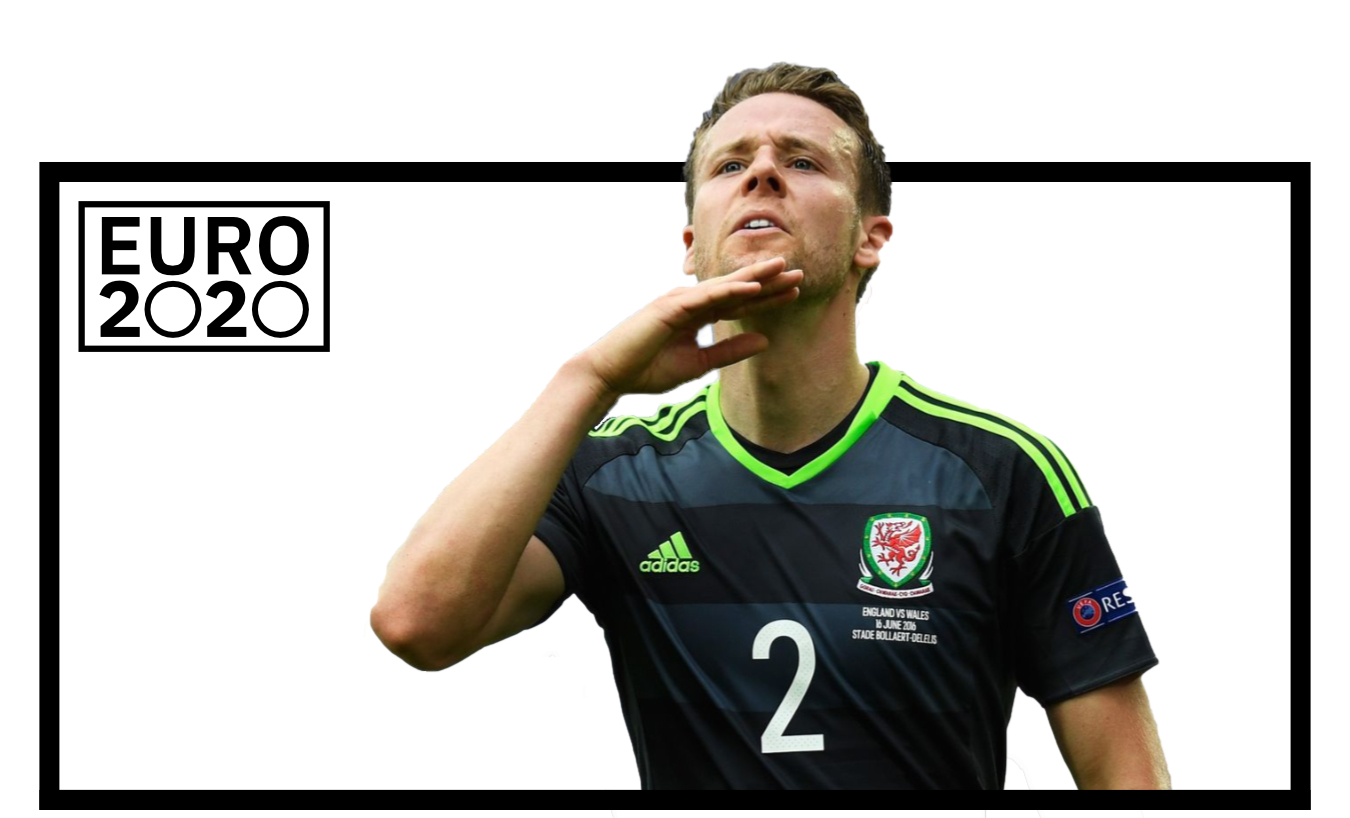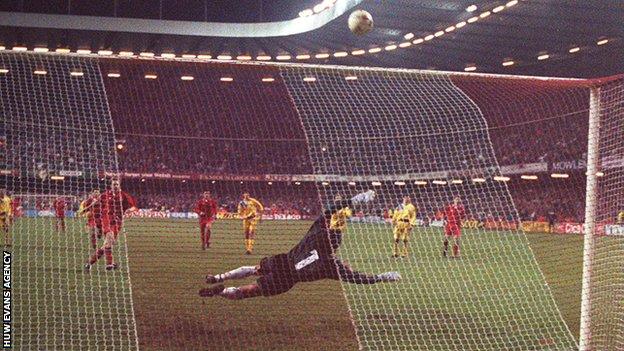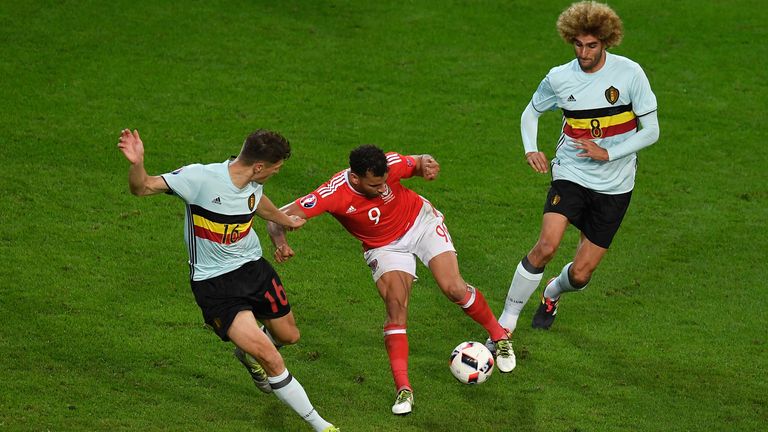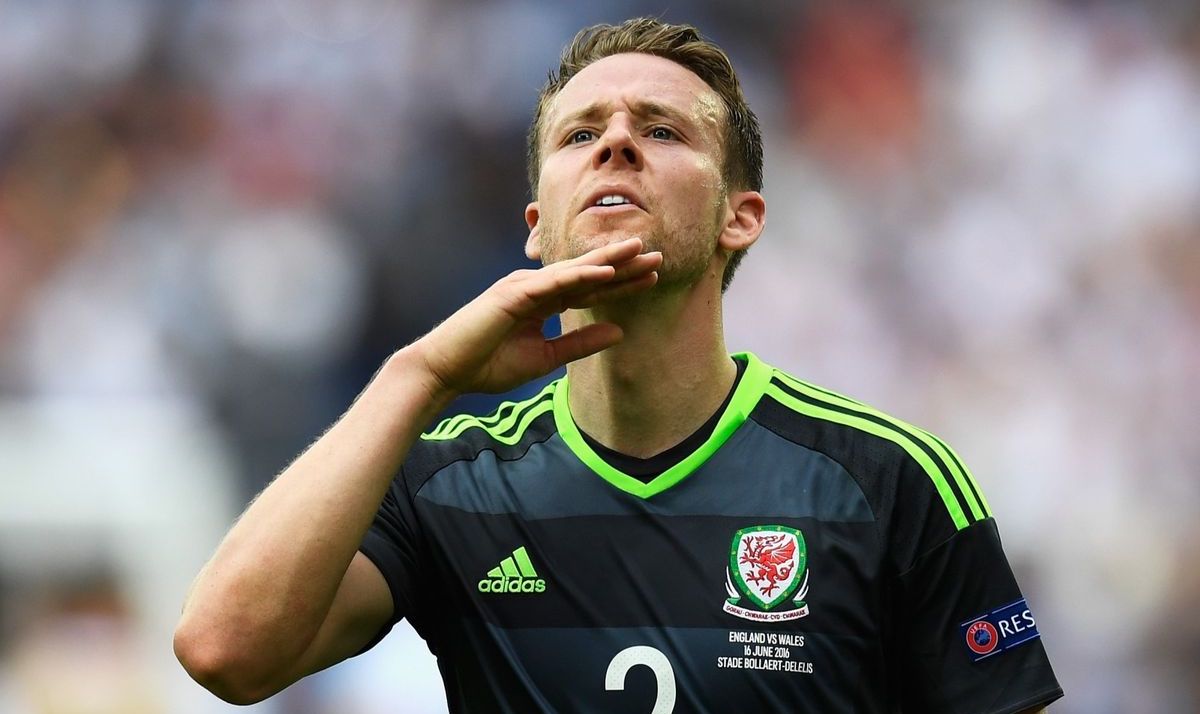
Wales at Euro 2020: How Did We Get Here?
After the glory of 2016, Wales may have instilled themselves in the minds of fans as a part of the furniture of elite global football. But as Euro 2020 nears a year late, seeing Wales included in all the pre-tournament PR, I still feel the need to pinch myself. I feel the need to remind everyone: This isn’t normal for Wales.
Welsh football fans, until recently, had been a pessimistic bunch, and understandably so. They’d been hurt too many times. Ask any member of Y Wal Goch (The Red Wall) and they will tell you about the near misses. The list is unending. More recent examples include poor Paul Bodin’s infamous penalty miss which kept the likes of Ian Rush, Mark Hughes, Gary Speed and Dean Saunders out of USA 94, and missing out on Euro 2004 qualification thanks to a narrow play-off defeat to a Russian side including Yegor Titov, who failed a drugs test days later. For so long, it just wasn’t meant to be for Wales.
 Paul Bodin’s Penalty Miss Keeps Wales Out of USA ’94.
Paul Bodin’s Penalty Miss Keeps Wales Out of USA ’94.
What followed was a pretty dark decade or so for Welsh international football. After grinding out a 2-1 victory over the minnows of San Marino in 2008 Euro qualifying, then captain Craig Bellamy described the Welsh crowd as ‘vicious’, after fans were heard singing such classics as ‘you’re not fit to wear the shirt’. The extent of Wales’ newfound success is best captured through their record-breaking rise in the FIFA World Rankings, from 117th in 2011 to 8th in 2015. 117th. The FIFA World Rankings system is not without its critics, but sat amongst a crowd of barely 5000 fans at Llanelli’s Parc y Scarlets for a friendly against Luxembourg, I think my 10-year-old self probably would have told you that 117th in the world felt about right. Qualification for a major tournament was a distant, unattainable pipedream. We were nowhere near.
Fast forward to that glorious summer in France and something had changed in the Wales camp, dramatically. Of course, talents like Bale and Ramsey helped - but Wales have always had good players, and while perhaps not at the peak of their powers, they’d been in those squads back in 2011 as well. This time, something was different. In qualifying and in the tournament itself, every Welsh player seemed to overperform. When he put on the red shirt, a clubless Hal Robson-Kanu turned became prime Messi - or, more aptly, Cruyff. Jonny Williams turned into Iniesta. Joe Allen into the Welsh Xavi that Brendan Rogers prophesised.
 Robson-Kanu’s Cryuff Turn. (Image from Sky Sports)
Robson-Kanu’s Cryuff Turn. (Image from Sky Sports)
The grit of the defence, made up primarily of Championship players epitomised by cult hero Chris Gunter. Every player raised their level and the group wildly exceeded expectations. It was clear that the work of Gary Speed who took over in, continued by Chris Coleman had been about much more than football. Speed’s influence is much talked about and his legacy as Wales manager lies in the changes he made to the culture of the Welsh international football. Through the little things, such as the emphasis on everyone, Welsh-born or otherwise, singing Mae’n Hen Wlad Fy Nhadau together, he brought a team spirit and a self-belief that had perhaps never been seen before by an international side that has historically fallen short, partly as a result of poor facilities, low levels of professionalism and simply not being taken seriously. Wales had started to believe again, and Wales, a nation of 3 million, reaching the semi-finals of the Euros and being knocked out only by the champions showed nothing if not a culmination of this self-belief. Gunter’s gesture of ‘chin up’ to that teary-eyed Welsh fan witnessing defeat to England, felt like an acknowledgment of this from the players. They got it.
 Chris Gunter’s Now Famous ‘Chin Up’ Gesture. (Image from Wales Online)
Chris Gunter’s Now Famous ‘Chin Up’ Gesture. (Image from Wales Online)
With Coleman gone, along with many senior members of that Euro 2016 squad, there might have been a feeling that this spirit would dwindle. Ryan Giggs wasn’t the most popular appointment, and his desire from the off to play attacking, expansive football might have seemed naïve to many Welsh fans. But Wales qualified. Again. Not through free-flowing expansive football, mind you. Aided by the presence of Cardiff’s big-man-up-front Kieffer Moore, Wales were once again seen grinding out results and winning games by fine margins.
This is a much younger, less experienced side than 2016 - albeit with a lot more talent in the likes of Dan James, David Brooks and Joe Rodon - but what remains is that grit, that belief. The phenomenon of players overperforming in a Wales shirt, too, has continued. This best seen in Joe Morrell. Morrell, who started just a handful of games for Championship side Luton Town this season, is yet to put a foot wrong for Wales and resembles a seasoned professional, comfortable on the global stage. As in 2016, there’s just something about this Wales team.
Wales do come into the tournament in slightly unusual circumstances, with Robert Page taking over in light of Giggs’ assault charges. Page is well liked however and seems to be seamlessly continuing the project without any trouble, showing that the culture of the national side goes far beyond just the manager.
It’s often said that Wales will need Bale and Ramsey to perform at their best if they stand any chance of getting out of this tough group of Italy, Turkey and Switzerland, but they’ll also need the likes of David Brooks, Joe Morrell, Kieffer Moore, Dan James, Ethan Ampadu, Connor Roberts, Chris Gunter, Danny Ward, Jonny Williams, Matt Smith, even uncapped Rubin Colwill, to step up and show what got Wales so far that magical summer in France.
